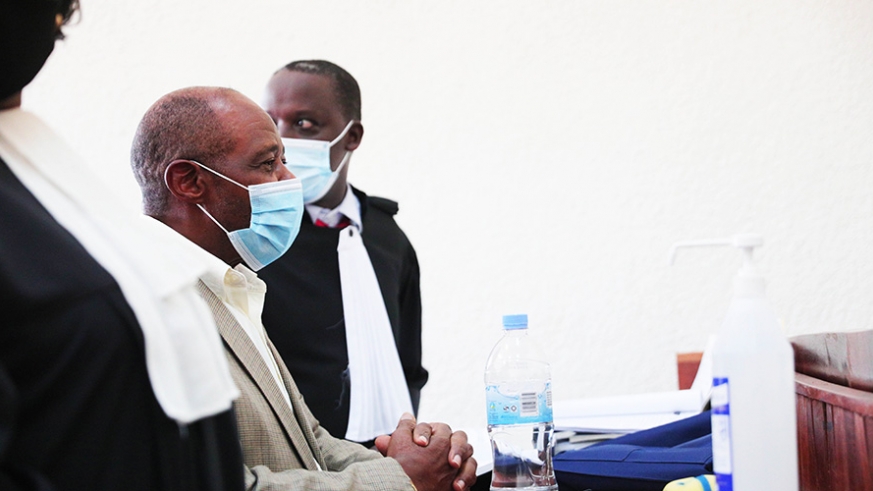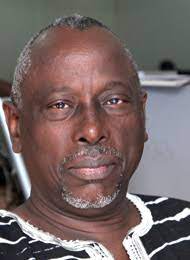

They attack in a pack like hounds, and with similar savagery. With hounds, this is understandable; they exist and are trained for this purpose. It would be a rare one that showed any kindness to its prey.
But with humans, some of whom claim to be the voice and conscience of the world, behaving and acting like hounds is unconscionable, except, of course, if they share the same purpose. Yet that is what for the last twenty-six years an alliance of some foreign media, NGOs, lobbyists and publicists, and some in academia have been doing to Rwanda.
They have been at it again these past two weeks since the arrest of Paul Rusesabagina on charges of terrorism, murder, arson and other terrible crimes. As always, they have been callous, deceitful, hypocritical, and simply incorrect.
When reporting on Rwanda, and Africa in general, they are condescending. Ordinary norms do not apply, and so they can tell lies and that should pass for fact.
Look at these false allegations relating to Russabagina. Rwanda abducted him from Dubai. No evidence, just a wild claim we are expected to believe because it is Rwanda that is involved.
He is being held incommunicado, yet he has spoken to the media and his family and they know it.
Again, he is being horribly tortured. No proof of that. Still, they make it even when he has appeared in public and showed no sign of harm.
He is not going to get a fair trial. Reason? He is being tried in Rwanda.
This particular claim being made at this moment is not only disingenuous but also foolish. We all know where justice is denied some of its citizens and yet we have not heard any loud howls of protest from those making noise now.
Similarly, when reporting on Africa normal journalistic standards of fact-checking (usually more than once), fairness, objectivity and balance can safely be waved aside. It is not worth the effort. Scepticism with which every reporter should greet any claim is conveniently suspended.
The reporting is mostly inaccurate, often because of wilfully ignoring the facts or unwillingness to learn or accept the truth. For example, The Economist reported: "Rwandans are terrified of their government. They are constantly watched for dissent. History is rewritten to suit the present. Heroes can become unheroes overnight.”
A simple check and the writer would have found that Rwandans have a lot of trust in their government and even more in their president. It is all there in various national and international surveys and reports.
There is interesting irony here. It is the media and their allies that actually make their own facts to suit their narrative and so write a history of their own. They are the ones that can make an extortionist hotel manager turned taxi driver into a hero overnight.
The anti-Rwanda alliance are ready to believe Rusesabagina’s claims to have saved hundreds of lives during the genocide against the Tutsi in Rwanda in 1994 but not the testimony of survivors of the genocide or residents of the hotel at the time, including General Romeo Dallaire, the top UN peace keeper in Rwanda then.
They are prepared to accept the word of lawyers and family thousands of miles away about alleged abduction, kidnap, illegal rendition, and so on, but not the explanation of the government of Rwanda, the United Arab Emirates, and, indeed, Rusesabaguna himself.
Sometimes, in an attempt to make their man a saint and victim, and Rwanda the villain and aggressor, they inadvertently expose him for what he is. Take, for instance, the article by Jason Burke in The Guardian (10/9/2020).
He describes Rusesabagina at his home in San Antonio, Texas, as an ordinary man doing ordinary things like watering his plants. In other words, he is incapable of committing such horrible crimes he is charged with and, in fact, deprived of his ordinariness by his arrest.
However, the writer unwittingly draws comparison to other ordinary people in Nyabimata in Rwanda deprived of their lives and livelihood by the actions of this supposedly innocent man. They were going about their normal business of survival (not watering flowers) when the terrorists Rusesabagina commands set on them, murdering many and destroying their property. But of these, not a word from Burke or other writers.
The writer then turns to Rusesabagina’s children. They are under stress and worried. What does he think the children orphaned, the women widowed, and all those whose livelihoods were destroyed by Rusesabagina’s men feel? Presumably they do not matter. Their fathers are not heroes, even of the artificially created variety.
This sort of thinking, of the life of a celebrity, even a fake one, being more important than that of thousands of ordinary people, is not limited to the media and NGO alliance.
It extends even to the UN. It has just provided security for Dr Denis Mukwege in the DR Congo on the strength of the noise of the same alliance that his life is in danger.
Yet, for more than twenty years the same UN has failed to provide security for thousands of ordinary Congolese who have been victims of attacks by armed bands that roam eastern Congo.
Finally, there is this from The Times: Kagame makes fools of us, Mr Roger Boyes, diplomatic editor of The Times, claims. President Kagama can’t really do this. He can’t make fools of those who already are.
The views expressed in this article are of the author.


